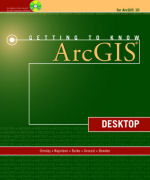The following excerpt came from the final comments I offered in a discussion board for an online course I took in Fall 2010, Introduction to Geographic Information Systems. (It was an entirely online course, which was an good experience that I’ll discuss in another post someday. For now, I’ll just mention that I was pleased with online education and I plan to do more of it. I also posted links to our textbooks.)


This course has been a great introduction to the vast universe of GIS. I say ‘universe’ because there’s a lot of space to map out there, and even here on my city block there are countless attributes that could be collected and imported to a GIS for further study, or for mass consumption. For me, playing with GIS is like having a second brain, and one that is far more mathematically inclined than my first brain. So GIS has been an extension of my skill set that I never knew was accessible.
I learned that ArcGIS is an incredibly feature-rich environment. It amazed me to witness how much this software is capable of, and I know that we’ve barely scratched the surface! Yet I also found the software to be very clunky and somewhat old fashioned, if that makes any sense. I also experienced a very tedious and painful process just getting the software installed and licensed properly (using the 180-day trial that accompanies our textbook). And using this software, I was regularly reminded about how restrictive software licensing can be, and how inaccessible this amazing resource is – unless you fork over large sums of money. For that and other reasons, I look forward to using other GIS software tools in the future. I hope to learn more about mapping with Google Earth, and also exploring the open source alternatives to ArcGIS, such as PostGIS, GRASS GIS, Quantum GIS, and uDig. Yet as I understand it, ArcGIS is the industry standard, and any alternatives have a ways to go to match the functionality (am I wrong?).
Finally, the more I learn about GIS, the more questions I have. But this course has certainly affirmed to me that I’m capable of understanding the basic concepts of geography and cartography, and of navigating the GIS environment. I eagerly look forward to learning more about this universal field.
PS: It was great studying with you all!
